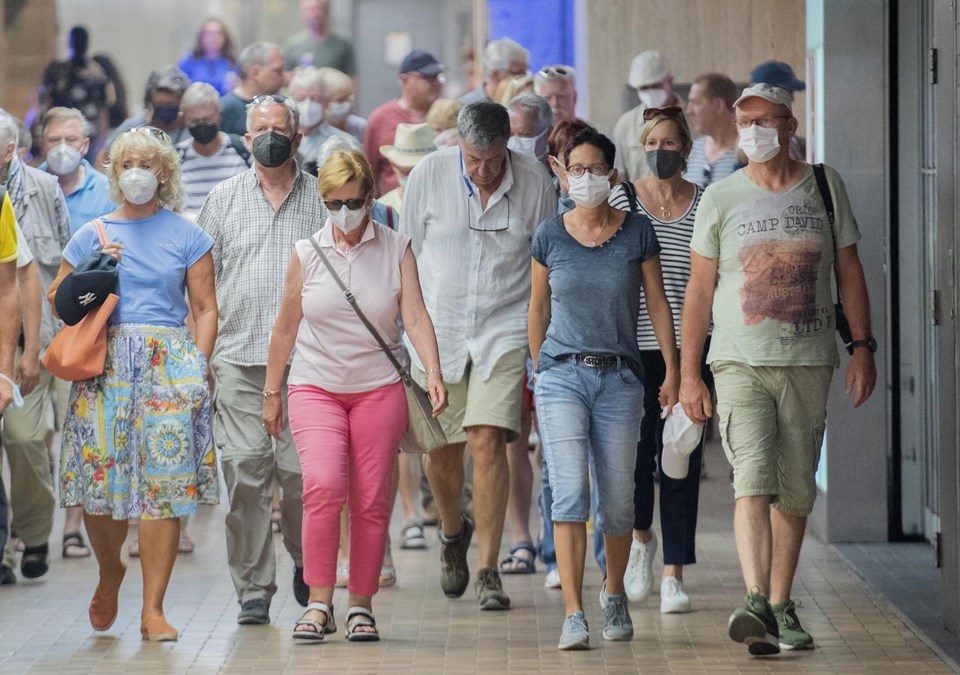MONTREAL — Some Quebec health workers have been asked to report to work in recent days while suffering from serious symptoms of COVID-19, including nausea, vomiting, headaches and serious fatigue, the head of a major Quebec nurses union said Monday.
Bringing a symptomatic, COVID-19-positive worker back on the job is "completely unacceptable" and runs counter to public health recommendations, Julie Bouchard of the Fédération Interprofessionnelle de la santé du Québec said.
"While the entire population is asked to stay home and isolate to avoid contamination when they have symptoms or are positive for COVID-19, workers in the health network can still go to work, risk contaminating our colleagues, make already vulnerable patients even sicker," she said in a phone interview.
"It goes completely counter to what public health has been saying to the Quebec population for weeks."
Bouchard said she's only heard of about 10 sick health workers affected so far, adding that the practice seems to be limited to a small number of employers. However, she said she worries more health facilities may try to do the same as the network grapples with serious staff shortages.
The Health Department confirmed in an email that it is possible for workers who test positive to be asked back to work, even if they have symptoms, but only in cases of "persistent compromise of access to services" and when all other options have been exhausted.
Any infected employees must work only with less vulnerable patients or on COVID-19-positive units and must wear protective equipment, spokesperson Robert Maranda wrote in an email. Maranda added that measures must be put in place in common areas to avoid sick workers contaminating other employees.
Bouchard said the government updated its policies to allow COVID-19-positive health workers to return to work during the fifth wave, which started in December, but she said that at the time the directive only applied to asymptomatic workers.
Réjean Leclerc, head of another union representing health workers, says he has yet to hear first-hand of any cases of symptomatic health workers being called in. However, he said his union has long been concerned that the policy of calling in asymptomatic COVID-19-positive workers could "backslide" into calling in those who are still sick.
Asking a sick person to return to work is dangerous for patients, colleagues and for the worker, who needs all their energy to fight the virus, he said Monday in a phone interview.
"We're against (bringing COVID-19-positive workers back to the job) because it's exacerbating the pandemic; it's delaying its end because we expose vulnerable people, patients, colleagues," said Leclerc, who is president of the FSSS-CSN. "It's a wheel that turns."
Instead, he said the government should address staff shortages by better incentivizing workers who have quit the field to return and by improving working conditions. Another way to ease the pressure on the health system is to reduce COVID-19 transmission among the general public, he added.
Meanwhile, the Quebec government on Monday reported no new deaths due to COVID-19 and dozens fewer people hospitalized with the disease. The Health Department said there were 2,125 people in hospital with COVID-19, which is 51 fewer than its last report published Friday. The number of people in intensive care dropped by one, to 67.
The government said there are currently 5,014 health-care workers off the job for reasons linked to COVID-19.
This report by The Canadian Press was first published Aug. 1, 2022.
Morgan Lowrie, The Canadian Press


